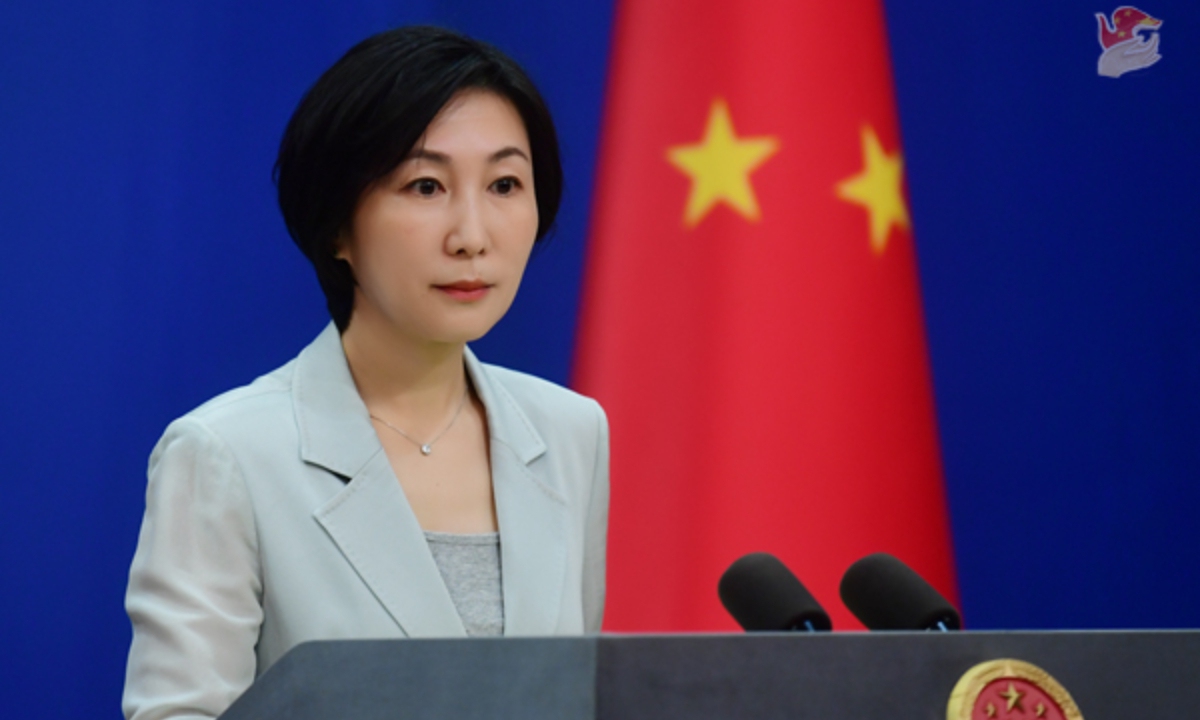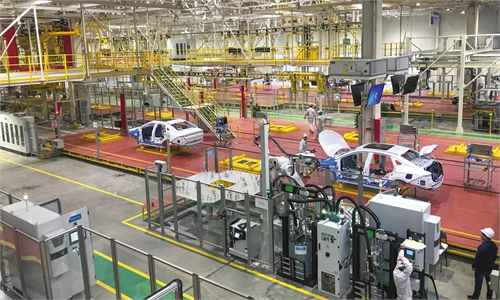
Foreign Ministry Spokesperson Mao Ning Photo: Ministry of Foreign Affairs
Trade protectionism and decoupling moves taken by some countries over so-called security concerns will only bring less security and more risks to the world, Chinese Foreign Ministry spokesperson Mao Ning said on Tuesday in response to an IMF warning on economic fragmentation caused by rising trade protectionism.
Mao said that trade protectionism distorts the free flow of goods, services and capital, harms consumer interests, hinders the improvement of production efficiency, and impedes the recovery and development of the global economy.
It is concerning that certain countries are using so-called security concerns as an excuse to decouple and impose trade restrictions. Such moves will only make the world less secure and bring about more risks, Mao added.
The remarks came after IMF First Managing Deputy Director Gita Gopinath told the 20th World Congress of the International Economic Association that around 3,000 trade restrictions were imposed last year - nearly three times the number imposed in 2019.
If the global economy were to fragment, losses are estimated to be about 2.5 percent and could reach as high as 7 percent of GDP, Gopinath said.
China's door is opening further while some Western countries, in contrast, are turning away from free trade and seeking to decouple from China, analysts said.
Mao stressed that China is committed to building an open world economy and is determined to promote high-level opening-up.
"We believe that non-cooperation is the biggest risk and non-development is the biggest insecurity," Mao said.
China is willing to work with all parties to adhere to equal consultations and mutually beneficial cooperation, in order to achieve common development and prosperity for all countries, Mao noted.
China announced in October that it will remove all restrictions on foreign investment in the manufacturing sector, underscoring its commitment to a more open and inviting business environment.
China's negative lists for foreign investment have been reduced by more than 80 percent since 2013, when the negative list approach was first adopted in China's inaugural pilot free trade zone (FTZ) in Shanghai, the Xinhua News Agency reported.
China now has 21 FTZs and the Hainan Free Trade Port. The 21 FTZs accounted for nearly 18 percent of the country's total trade in 2022, according to the report.
Data from the Chinese Ministry of Commerce showed that in the first three quarters of 2023, the actual use of foreign capital in the manufacturing industry in China increased by 2.4 percent year-on-year, with the actual use of foreign capital in high-tech manufacturing increasing by 12.8 percent year-on-year, highlighting the high quality of foreign investment.
Global Times



